Today we celebrate with great joy one of the most wonderful feasts on our Church calendar, the Most Holy Body and Blood of Christ. Through this greatest of all gifts, we have been made one with our God who loves his people beyond all imagining. We experience this love in perhaps one of the most basic ways of our human existence, which is to say by being fed. Learning to satisfy our hunger is one of the first things we learn; we learn who we can depend on and develop close relationships with those people. Today’s feast brings it to a higher level, of course. The hunger we’re talking about is not mere physical hunger, but instead a deep inner yearning, a hunger for wholeness, for relatedness, for intimate union with our God. This is a hunger that we all have, and despite our feeble attempts to do otherwise, it cannot be filled with anything less than God.
God has repeatedly sought a covenant with us. Eucharistic Prayer IV beautifully summarizes God’s desire: “You formed man in your own image and entrusted the whole world to his care, so that in serving you alone, the Creator, he might have dominion over all creatures. And when through disobedience he had lost your friendship, you did not abandon him to the domain of death. For you came in mercy to the aid of all, so that those who seek might find you. Time and again you offered them covenants and through the prophets taught them to look forward to salvation.” And unlike human covenants, which have to be ratified by both parties, and are useless unless both parties agree, the covenant offered by God is effective on its face. God initiates the covenant, unilaterally, out of love for us. Our hardness of heart, our sinfulness, our constant turning away from the covenant do not nullify that covenant. God’s grace transcends our weakness, God’s jealous love for us and constant pursuit of us is limitless.
Today’s Liturgy of the Word shows us the history of the covenant. The first reading recalls the covenant God made with the Israelites through the ministry of Moses. The people agree to do everything the Lord commanded, and Moses seals the covenant by sprinkling the people with the blood of the sacrifice and saying, “This is the blood of the covenant that the Lord has made with you in accordance with all these words of his.” The writer of the Letter to the Hebrews makes the point that if the blood of sacrificed animals can bring people back in relationship with God, how much more could the blood of Christ draw back all those who have strayed. Christ is the mediator of the new covenant, as he himself said in the Gospel: “This is my blood of the covenant, which will be shed for many.”
And so we, among the many, benefit from Christ’s blood of the covenant. The preface for the Eucharist Prayer today says, “As we eat his flesh that was sacrificed for us, we are made strong, and, as we drink his Blood that was poured out for us, we are washed clean.” God’s desire for covenant with us cannot be stopped by sin or death or the grave because his grace is mightier than all of that.
We disciples are called then to respond to the covenant. Having been recipients of the great grace of God’s love, we are called to live the covenant in our relationships with others. Which isn’t always the easiest thing to do. Sometimes people test our desire to be in covenant with them; sometimes they don’t even want to be in covenant with us. But the model for our relationships with others is the relationship God has with us. And so sometimes we have to unilaterally extend the covenant, even if the other isn’t willing, or doesn’t know, that we care for them. God wants to offer the covenant to everyone on earth, and he may well be using us to extend the covenant to those he puts in our path.
We do this in so many ways. We might occasionally bring a bag of groceries for the Plainfield Interfaith Food Pantry, or even a few things for our micropantry here at the parish. We might spend time volunteering in our school or religious education program, or in any of our many ministries here. Any time we can freely give ourselves to others, we are extending the covenant to them by loving them unconditionally, as God has gloriously done for us.
God’s covenant with us is renewed every day, and celebrated every time we come to receive Holy Communion. When we receive the Most Holy Body and Blood of Christ in the Eucharist, we are renewed in the covenant, strengthened in grace and holiness, and brought nearer to our God who longs for us. We who are so richly graced can do no less than extend the covenant to others, helping them too to know God’s love for them, feeding them physically and spiritually.
The Psalmist asks today, “How shall I make a return to the LORD for all the good he has done for me?” And the answer is given: by taking up the chalice of salvation, drinking of God’s grace, renewing the covenant, and passing it on to others. May the Body and Blood of Christ keep us all safe for eternal life!
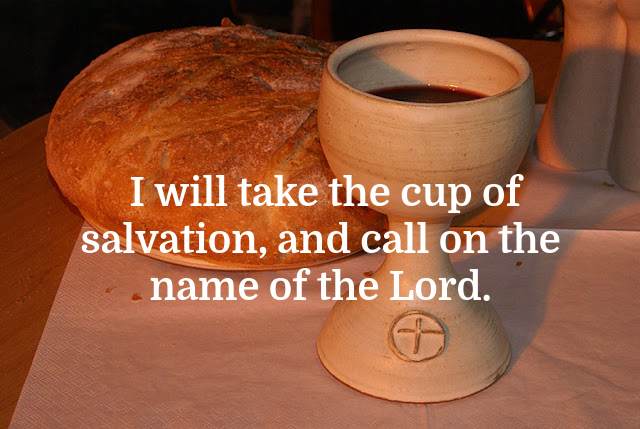
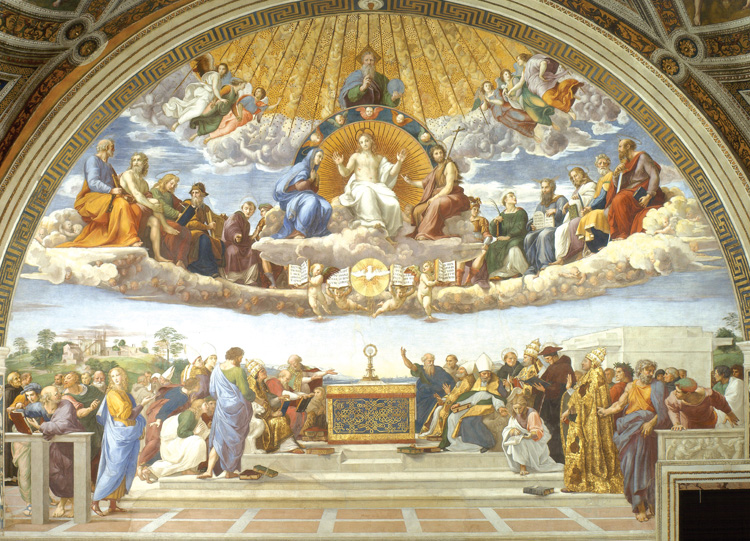
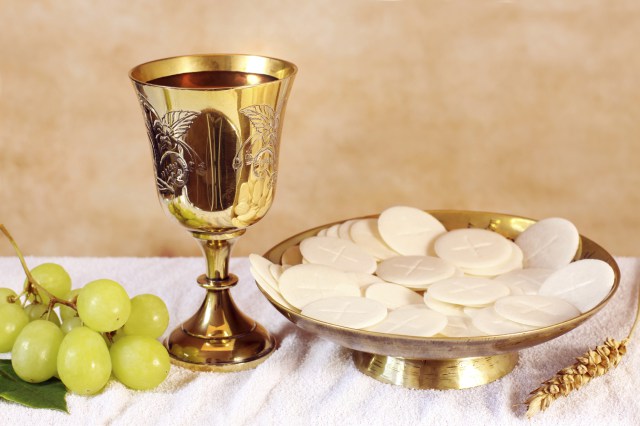
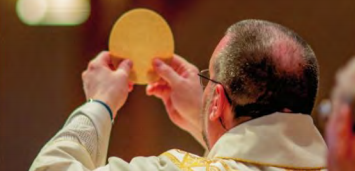
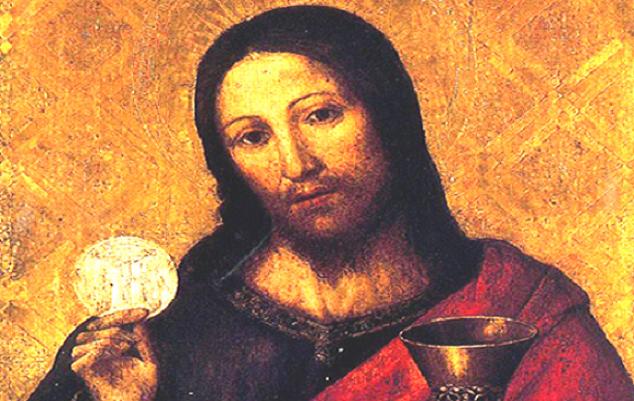
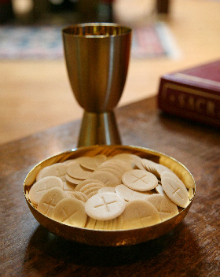

You must be logged in to post a comment.